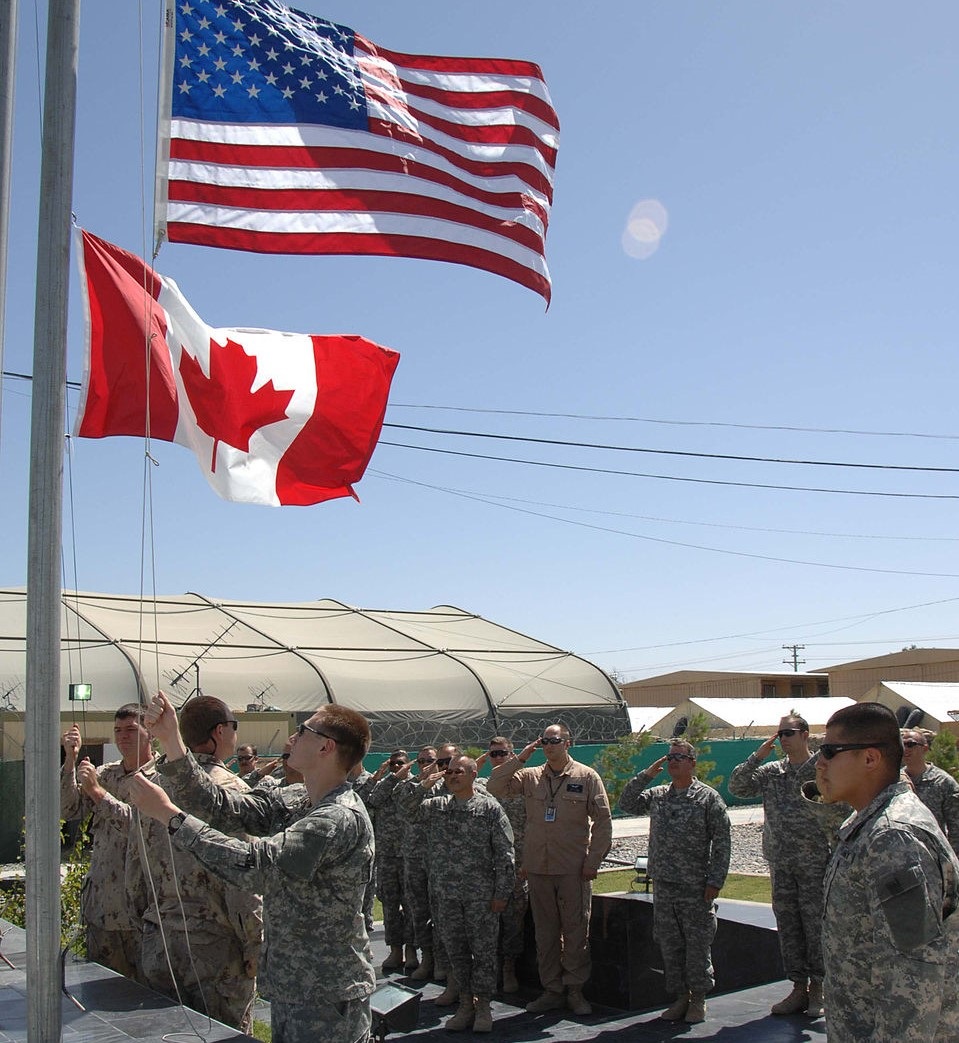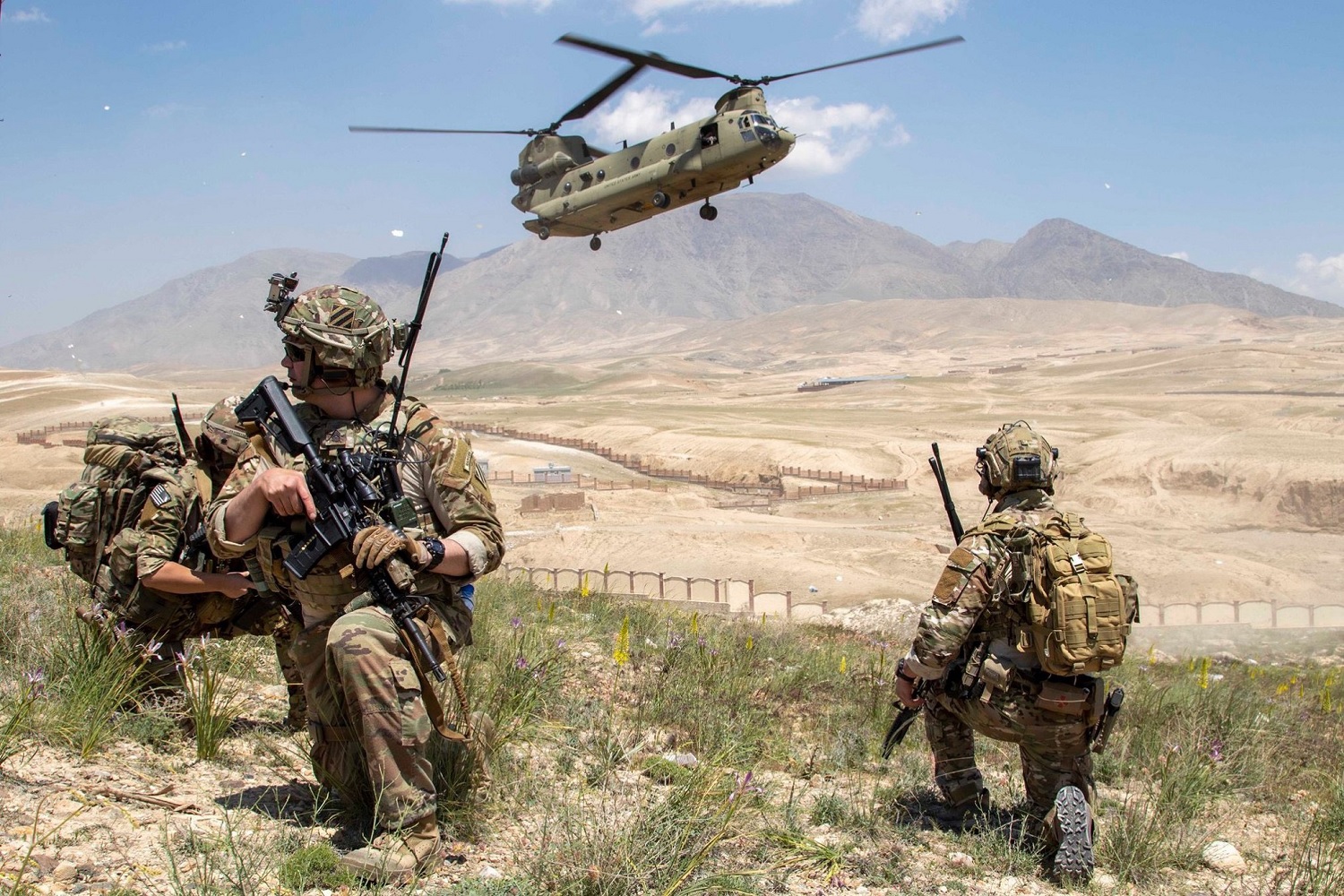- After the Apocalypse: America’s Role in a World Transformed
- Metropolitan Books (2021)
Kandahar, so long defended by Canadian troops, has fallen. Andrew Bacevich is not likely to be surprised by the imminent fall of Kabul, and the return of the Taliban to power in Afghanistan. In his view, it will be only the latest in a long string of disasters that the U.S. (with our help) has inflicted on itself and world over the last 75 years.
Bacevich might seem to be an unlikely critic of American foreign policy. A self-described Catholic conservative, he is a West Point graduate who served in Vietnam and the Gulf War; his son died in the Iraq War. Since retirement he has been a professor of history and a prolific author.
Many of his books, however, have been highly critical of American policy since the Second World War, which he sees as rooted in “American exceptionalism” — the belief that the American people and their institutions are examples to the world, and as such entitled to impose their will on the world and export their values to less fortunate nations.
The year 2020, with its pandemic, economic collapse, climate disasters, race protests and presidential election, seem to Bacevich the climax of 75 years of violent and self-destructive folly. Hence this short, angry, brilliant book, which proposes a radical restructuring of U.S. foreign and domestic policy. It also offers Canadians a chance to reconsider our own role in this uncertain new world.
American exceptionalism goes back centuries, and is based on the conviction that American democracy is far superior to any other form of government. He cites former secretary of state Madeleine Albright, who in 1998 said: “We are the indispensable nation. We stand tall and we see further than other countries into the future.”
The U.S. is therefore privileged to set up and knock down governments around the world, operate some 800 bases in 140 countries so as to “project power,” and to maintain a military far stronger than any conceivable coalition of adversaries. After the Second World War, this could be justified on two grounds. First, failure to prepare for war in the 1930s had encouraged Hitler and Japan in their aggressions. The U.S. must therefore be ready to fight a similar world war all over again, but this time with the most powerful military in the world. Second, in the 1940s and thereafter, Soviet and Chinese communism had to be contained, since those countries were too big to fight. (Bacevich frames the first rule of imperial maintenance: “Don’t invade Russia.”)
With the implosion of the Soviet Union, and the economic transformation of China, America was all dressed up with nowhere to go. It continued to fund a military designed to fight World War III as a high-tech sequel to the Second World War, complete with sneak attack, tank battles in Europe, and vast naval fleets sweeping across the seas, plus nuclear missiles.
In practice, the American military was sadly unready for lesser wars and low-tech challenges. Korea was a “police action” that saw North Korea bombed flat with a million deaths, but it ended in 1953 with a “truce” that continues 68 years later. Vietnam pitted B-52 bombers against guys pushing bicycles laden with rice and ammunition over jungle trails. The bicycle guys won.
Spectacular blowback
Meanwhile, U.S.-engineered coups produced spectacular blowback. Overthrowing the democratic government of Iran in 1953 led directly to the revolution of 1978 that created the Islamic Republic. Ousting democratically elected president Jacobo Arbenz in Guatemala in 1954 triggered horrendous genocide against the Maya, and ensured Fidel Castro would be well prepared for the 1961 Bay of Pigs and decades of sanctions. And of course, funding the Islamists against the Russians in Afghanistan equipped Osama bin Laden to launch 9/11, yet another attack for which America’s bloated military was unprepared.
Winning the Cold War brought no reappraisal of policy, and certainly no “peace bonus” for the long-suffering Americans whose taxes had funded these adventures. The U.S. enjoyed a decade of victory laps, interspersed with bombings of Iraq and Belgrade that achieved nothing. The 1993 “Black Hawk Down” incident taught the world that killing 19 American soldiers could deter the superpower from further annoying a poor nation like Somalia in the Horn of Africa.
Bacevich makes it clear that his fellow-Americans fell in love with the image of themselves as the greatest generation, winning the Second World War and saving the postwar world. The reality was that America was late to both world wars, and its major service in both had been as paymaster and quartermaster, while its British, Commonwealth and Russian allies did most of the fighting and dying.
Still, the Americans emerged as last global power standing, with the Soviets as a vital ally turned convenient enemy. Rather than fight a third world war, the U.S. turned to subversion and proxy wars: engineering coups in Iran and Guatemala, giving tacit permission to Indonesia to massacre hundreds of thousands of “communists,” and entering a series of failed wars from Korea to Afghanistan.
Yet as Bacevich points out, 70 years of this policy’s defeats and blowback went ignored. Washington provided ever larger military budgets, and the defeats only created new enemies like Iran’s ayatollahs and the Islamic State in Iraq. The U.S. portrayed these struggles as the “West” or the “Free World” locked in conflict with evildoers — but it ditched those terms when its weary allies pulled back on adventures like Iraq, and resorted to a “coalition of the willing.” That coalition included organizations like Blackwater, supplying mercenary “contractors” who could be killed without political complaint from American voters.
“Beginning in the 1990s,” says Bacevich, “Washington succumbed to militarism, embracing an approach to statecraft that relied on the use or threatened use of armed force, with diplomacy an afterthought.”

George W. Bush launched two wars; Barack Obama continued them, and Joe Biden is now conceding defeat in Afghanistan while Iraq can be ignored as a mere mess. It took a racketeer like Donald Trump to point out what millions of Americans hadn’t said out loud: that the whole superpower shtick was itself a racket, run at the expense of taxpayers who got nothing out of it except jobs in the military and defence industries.
Even racketeers are sometimes right, and Trump — already a longtime enemy of Washington — could get away with such a scandalous expression of the truth. But he had no alternative except to boost military spending while demolishing the State Department and other American institutions. With the election of Biden, a semblance of American exceptionalism was restored, including the predictable collapse of Afghanistan.
Bacevich misses one key point about Trump’s challenge to the “New Order” that has ruled America since 1945 if not earlier: the American left largely sided with the establishment against Trump. Much of the political wing that had proven relentlessly critical of FBI spying on America’s own citizens and CIA machinations around the world now was rooting for intelligence organizations to expose and bring down the rogue president.
Only a handful of Democratic progressives like Alexandria Ocasio-Cortez have dared to attack their own party from the left, and they may not succeed. Compared to Trump, even the New Order looks good to comfortable folks who think themselves left-wingers.
Bacevich notes that critics of the postwar status quo are effectively excluded from the debate, whether they’re on the right like Patrick Buchanan or on the left like Noam Chomsky. The debate’s premises are always those of American exceptionalism. Tennessee Gov. Bill Lee recently assured his voters that in his state “our students will be taught unapologetic American exceptionalism.”
The scam of ‘national security’
Bacevich makes an important point in his book: at some point “national defence” was replaced by “national security,” whose solutions would always create new problems requiring enormous military and intelligence organizations. The organizations in turn demand enormous budgets that might otherwise have gone to building better schools and health care and building social capital instead of encouraging Americans to buy more guns to protect themselves from their fellow-Americans.
National security, Bacevich argues, should deal with the immediate well-being of Americans, not with protecting them from obscure threats in distant countries that can be bombed with drones launched from nuclear-powered aircraft carriers.
“If we’re going to defund,” Bacevich says, “let’s start with the Pentagon and not the police.”
He also argues, like Trump, that the U.S. should pull out of NATO, saying this is not 1930s-style isolationism, but simply taking care of one’s own people before pretending to take care of others. (He also says a nuclear-armed Israel is in no need of further American subsidies.) America should look to its neighbours, Canada and Mexico, rather than countries of no real strategic value to Americans’ well-being.
This argument deserves some thought, especially for Canadians. We’ve played good cop to the Americans’ bad cop for decades, and we wisely avoided Iraq. But we went along with Afghanistan and suffered the consequences. In general, from Suez in 1956 to today, we’ve just cleaned up American messes and bought American weaponry to maybe, possibly, someday re-fight the Battle of Britain against Russia over the Canadian Arctic.
We have downloaded the costs of these follies onto the Indigenous reserves that still have no drinkable water or adequate housing or decent schools. We have downloaded the costs onto “essential” workers who go on working without adequate pay and living in housing they can’t afford. We have downloaded the costs onto health-care workers, and the first responders dealing with the combined disasters of pandemic, opioid overdoses and heat waves. When they break down, we will download the costs onto someone else.
No doubt we’ll learn to live with a sobered, post-imperial America, but we’ll also have to live with new wannabe empires like China and Russia, as well as reactionary states like Hungary and Belarus. This will involve a return to the spirit of the 1648 Treaty of Westphalia, which ended the ruinous wars between Catholics and Protestants: You stay out of our internal affairs, and we’ll stay out of yours.
Yes, that will be very hard on the Uyghurs and Afghan women and all the other people who would like to live the way we’ve marketed ourselves since 1945. It may also tempt many countries to fill an imperial vacuum, just as climate catastrophe makes a mockery of their ambitions.
The Americans and Canadians in the 1940s saved the European empires from German and Japanese wannabe empires, but at a cost of scores of millions of lives and under conditions we will not see again. We were the white saviours, the knights in shining armour. We Canadians liked the role so much we stuck with it, like supporting actors in some superhero movie franchise offering nothing but more money and bigger bangs with every sequel.
We can’t save the Uyghurs or the Afghan women any more than we could save the Armenians from the Turks in 1916, or the Rwandans and Yugoslavs in the 1990s. We may be able to save a few lucky refugees, and they in turn will have to help save us as we try to survive the next few difficult decades. ![]()
Read more: Politics
















Tyee Commenting Guidelines
Comments that violate guidelines risk being deleted, and violations may result in a temporary or permanent user ban. Maintain the spirit of good conversation to stay in the discussion.
*Please note The Tyee is not a forum for spreading misinformation about COVID-19, denying its existence or minimizing its risk to public health.
Do:
Do not: